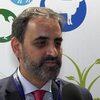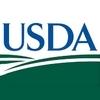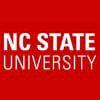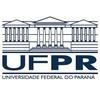Explore all the information on
Coccidiosis in poultry
Coccidiosis is a protozoal disease causing diarrhea, ,weight loss and decreased production in poultry. It can be fatal. Prevention is key and is achieved with use of anticoccidials or vaccination. Diagnosis is by fecal flotation to detect oocysts, often in combination with characteristic necropsy findings. Coccidiosis is caused by protozoa of the phylum Apicomplexa, family Eimeriidae. Most species affecting poultry belong to the genus Eimeria and infect various intestinal sites. The disease course is rapid (4–7 days) and is characterized by parasite replication in host cells with extensive damage to intestinal mucosa. Coccidia in poultry are generally host-specific, and the different species infect specific portions of the intestine. However, in game birds, including quail, the coccidia may infect the entire intestinal tract. In poultry, game birds reared in captivity, and wild birds, coccidiosis occurs worldwide.
Is a parasitic disease caused by protozoan of the genus Eimeria , affecting virtually all domestic and wild poultry species. The disease transmission is fecal-oral, by ingesting sporulated oocysts present in the litter, from faeces from infected birds, although a mechanical...
Comments : 34
Recommendations: 6
WHAT IS COCCIDIOSIS? Coccidiosis is the main parasitosis of poultry in South East Asia . Weather and farm conditions, management practices, together with the high prevalence of vectors in the region, such as Alphitobius , ease the survival and development of coccidia. Coccidiosis is a disease present in the poultry industry worldwide affecting the intestine and therefore, the growth and performance of birds. It is caused by protozoa of the genus...
Comments : 2
Recommendations: 0
...
Comments : 0
Recommendations: 0
Highlights from the conversation with Johan Van Erum, Derek Detzler, Maria Elena Rubio and Horacio Gamero, who joined Elizabeth Santin for this roundtable, during the 1st PoultryUniverse Coccidiosis Congress in Curitiba, Brazil....
Comments : 21
Recommendations: 3
Necrotic enteritis (NE) is one of the top enteric infectious diseases in commercial broiler chickens that is caused primarily by Clostridium perfringens (CP) A/G strains and responsible for around $6 billion economical loss worldwide. Coccidiosis is the major predisposing factor for NE. With gradual reduction and eventual withdrawal of antibiotic growth promoters from animal feed due to public and regulatory pressures, alternatives to antibiotic approaches assume top- priority for...
Comments : 0
Recommendations: 1
A new issue of e-newsletter is now available.
1--- CPV 2020 edition 2--- Noval anti-coccidial drug is approved 3--- Florfenicol, Tilmicosin,vitamin market review 4--- ASF issue
New Regulation & Publication
CVP-2020 Edition Approved
On Oct.29, the draft of Chinese Veterinary Pharmacopoeia (2020 Edition) was reviewed and approved. It marks the completion of the compilation of a new edition of Chinese...
Comments : 0
Recommendations: 0
INTRODUCTION In China, Spain, Italy, Mexico and Peru, amongst other countries, the consumer demands chicken with yellow skin pigmentation. Since skin pigmentation is associated with health status and product freshness (Breithaupt 2007, Liu et al 2008, Hernandez-Velasco et al 2014), there is a large volume of whole chicken or parts commercialized with the skin (Baker and Günther 2004). The inclusion level of dietary pigment for broiler chickens...
Comments : 0
Recommendations: 0
Avian coccidiosis is one of the most economically damaging infectious diseases affecting poultry. The etiologic agent is Eimeria spp., an obligate eukaryotic intracellular parasite belonging to the phylum Apicomplexa, which infects chickens’ intestinal tracts and is transmitted through a fecal-to-oral route (7,49). Clinical manifestations of infection include damage to the intestinal epithelium, decreased nutrient absorption, inefficient feed utilization, and impaired growth rate,...
Comments : 0
Recommendations: 0
...
Comments : 1
Recommendations: 0
.jpg&w=3840&q=75)

Candidate Genes Associated with Survival Following Highly Pathogenic Avian Influenza Infection in Chickens
Suggested link
Elizabeth Santin (Federal University of Paraná, Brazil) discusses the advantages of the use of this system on poultry health, during the 1st PoultryUniverse Coccidiosis Congress in Curitiba, Brazil....
Comments : 6
Recommendations: 6
...
Comments : 0
Recommendations: 0
Ryan Arsenault (University of Delaware) presented research that allows a better understanding of the changes to the modern broiler immune system due to selective pressures, during the 8th Symposium on Gut Health in Production of Food Animals in St. Louis, USA....
Comments : 4
Recommendations: 2
Maarten De Gussem (Vetworks) talked about his approach regarding data analysis and its practical application in the industry, during IPPE 2020 in Atlanta, USA....
Comments : 0
Recommendations: 1
Introduction Avian coccidiosis is one of the most costly infectious diseases affecting the commercial poultry industry [1]. Coccidia that infect chickens include Eimeria acervulina, E. tenella, E. maxima, E. brunetti, E. necatrix, E. praecox, and E. mitis. These apicomplexan protists invade cells of the intestinal epithelium, evoking necrotic tissue destruction and resulting in reduced body weight gain in broilers, decreased egg production in layers, and fecal shedding of viable...
Comments : 0
Recommendations: 0
1. Introduction Genetic selection for production traits, to meet increased requirements for chicken meat, has been applied to broiler chickens at an unprecedented rate (Siegel, 2014; Tixier-Boichard et al., 2012; Zuidhof et al., 2014). Such an emphasis on productive traits may have compromised the ability of modern broilers to cope with metabolic and skeletal disorders (Dawkins and Layton, 2012; Julian, 1998) and infectious pathogens (Cheema et al., 2003; Yunis et al., 2000)....
Comments : 2
Recommendations: 2
Introduction Avian coccidiosis is caused by seven species of Eimeria protozoa (E. acervulina, E. maxima, E. tenella, E. mitis, E. necatrix, E. praecox, and E. brunetti) that differ in pathogenicity and immunogenicity [1,2]. The life cycles of all Eimeria species are of the monoxenous sporozoan type. Generally, infection develops following ingestion of sporulated oocysts and release of sporozoites, which subsequently invade intestinal epithelial cells. Through asexual...
Comments : 0
Recommendations: 2
INTRODUCTION Coccidiosis is considered one of the most important poultry diseases worldwide due to the economic losses it produces in performance and due to medication usage (Williams, 2002; Dalloul and Lillehoj, 2005). The use of vaccines to prevent coccidiosis has proven to be successful (Lee et al., 2009; Danforth, 1998; Williams and Gobbi, 2002) and is widely used today in the U.S poultry industry (Agri-Stats, Fort Wayne IN). However, in the process of developing immunity,...
Comments : 1
Recommendations: 1




















.jpg&w=3840&q=75)




.mp4&w=3840&q=75)







.jpg&w=3840&q=75)









